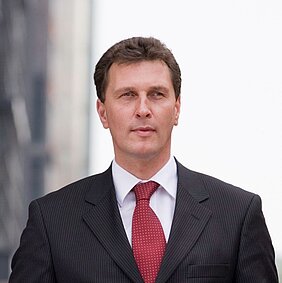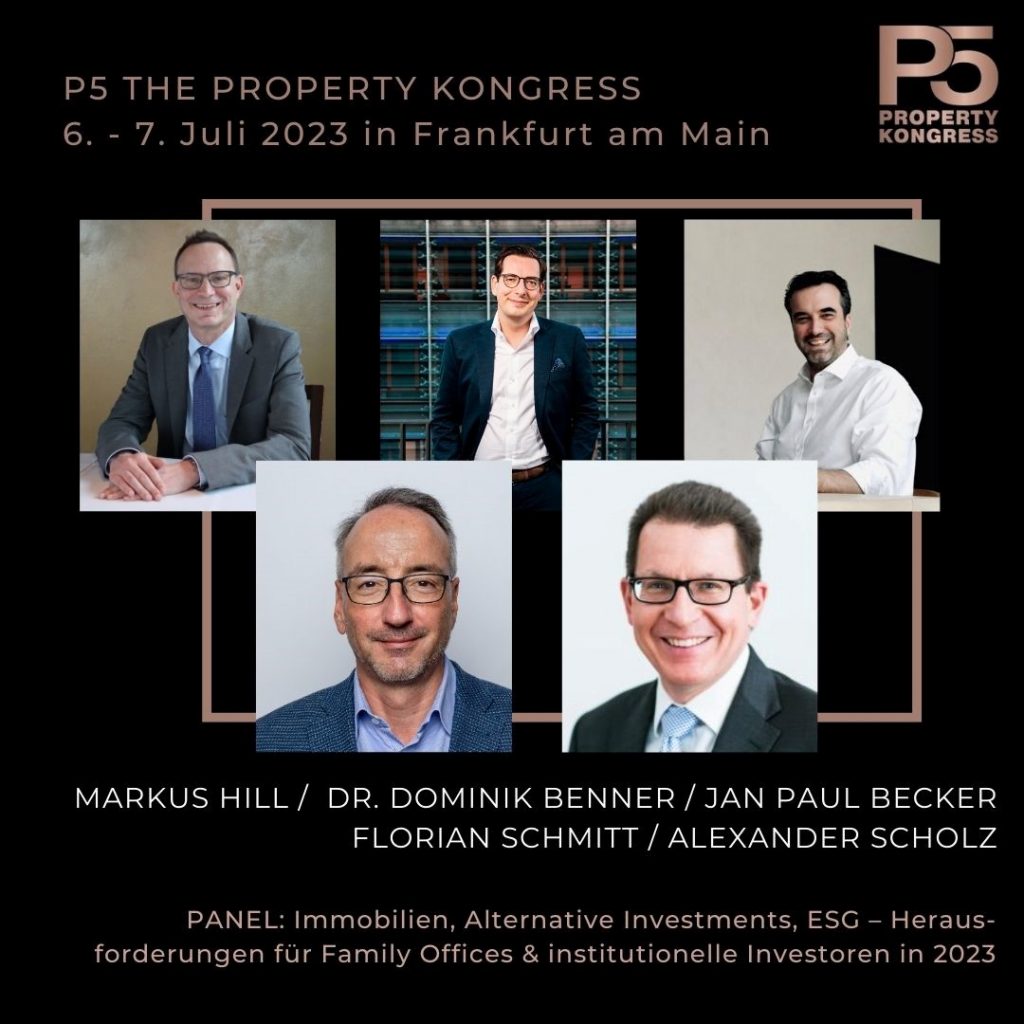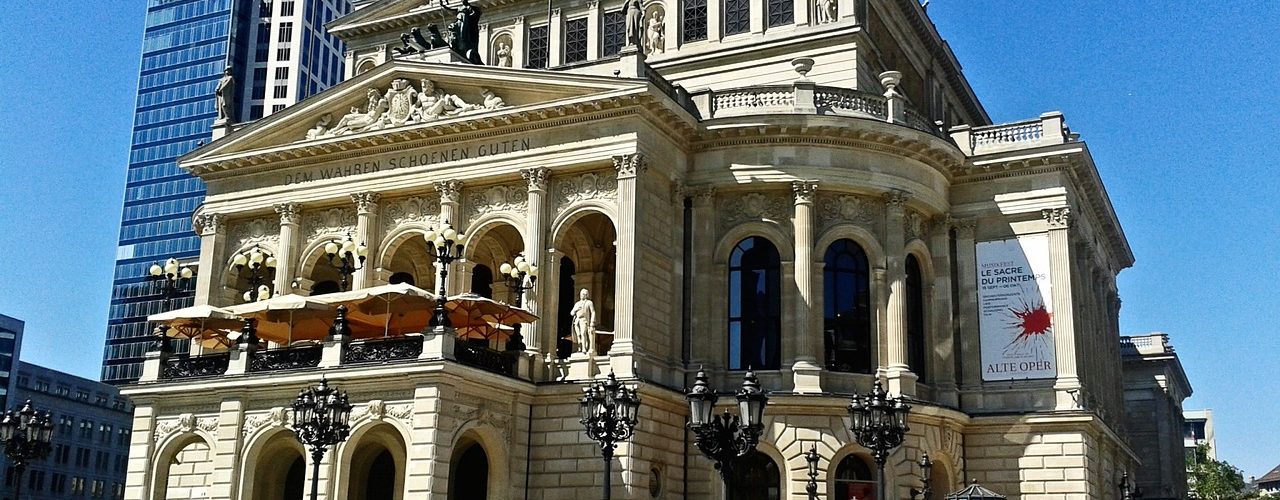USA, Canada, Europe, Renewable Energies and Infrastructure – Markus Hill spoke for FONDSBOUTIQUEN.DE with Sebastian Thürmer, artis ACM, about current trends in real estate, alternative investments, and ESG. The base of the conversation on various topics such as direct investments, special funds, and the private markets segment was, among other things, the recently conducted study “Investment Preferences of Institutional Investors.”
Hill: You are currently raising money for North American investments from German institutional investors. Product initiators are directly talking about a solid increase in demand from these investors. Is that true, and why is that?

Thürmer: Compared to Europe, the USA and Canada score with better long-term economic data, positive demographic prospects, attractive location conditions, a proactive industrial policy, and low energy prices. In Germany and Europe, we have been observing a kind of deindustrialization of the economy, for example relocation, for some time now. Capital investors are now joining this trend. This development is not without reason; after all, the U.S. and Canada specifically offer a high degree of legal security, which countries and regions in Asia cannot provide. In principle, however, this attitude is somewhat a vote against Germany and Europe, since many investors no longer understand political decisions in energy policy or the ignoring of structural problems. It is increasingly causing uncertainty and annoyance. This trend was also clearly expressed in the study “Investment Preferences of Institutional Investors” initiated by artis Institutional Capital Management and Telos Rating. You kindly discussed the survey of the study with me, Alexander Scholz (TELOS), Martin Krause & Martin Stoss (BVT Holding) in a podcast in May of this year, and I am naturally looking forward to the publication of our exchange of ideas soon. You are also moderating a panel on “Real Estate, Alternative Investments, ESG – Challenges for Family Offices & Institutional Investors” at the P5 THE PROPERTY CONGRESS by Dr. Dominik Benner on July 7 in Frankfurt. Mr. Scholz will be there, as well as Dr. Benner himself and Jan Paul Becker. An interesting mixture of experts, especially a different approach of family offices on this topic will be addressed.
Hill: So, institutional investors are turning away from Germany and Europe?
Thürmer: I disagree with this assessment, but investors are currently more open to non-European investments than they were a few years ago and are increasing their quotas. The investment focus of German institutional investors remains their home region. Moving forward however, they will prefer asset classes which are more independent of economic cycles.
Hill: Are you discussing the energy infrastructure issue?
Thürmer: Energy infrastructure is indeed one of the mega topics, but it covers only one subarea in the infrastructure sector. Infrastructure investments will gain enormous importance in the coming years. Thematically, the energy sector is at the top of the agenda for institutional investors as the core of the energy transition. However, it is also a fact that some institutional investors are irritated by energy policy or the rampant heating debate in Germany and are delaying investment decisions. I am not yet aware of any investment being on hold, but the discussion and the consequences are damaging Germany as a business location. As a combination, the infrastructure sector will have to be more broadly positioned in the future. Topics such as transport infrastructure, i.e. passenger and freight transport, as well as social issues such as health and education, have not yet been implemented or have only been implemented to a tiny extent. The huge need for investment in energy, digitization, or sustainable transport topics requires a great deal of capital. Accordingly, infrastructure investments in the portfolios of the insurance industry or pension funds will see massive growth in new businesses moving forward.
Hill: Is there a likelihood that the rate of infrastructure investment will overtake that of real estate in five or ten years?
Thürmer: Whether real estate or infrastructure will have a greater weighting in the overall allocation in five or ten years is pure speculation at present. Both asset classes have their importance in capital investment and therefore also their justification. Both asset classes are related to each other anyway and interlock over time. Some professional investors have already merged both areas.
Hill: How do you currently assess the asset classes real estate, private equity, and private debt?
Thürmer: We see a slight economic upturn worldwide in 2024, declining inflation figures, and, as a result, possibly falling interest rates again. That would be a good breeding ground for these asset classes. Institutional investors are currently quite reluctant to invest in real estate. Price levels have fallen in the past 12 months, in some cases significantly. This is accompanied by sharp rising rents. This makes real estate more attractive again and is likely to have an impact when interest rates fall. Institutional investors will probably continue to focus on residential real estate, as opposed to commercial real estate. New-build properties and existing properties built close to the new-build are then considered worthy of investment. For older buildings, the cost estimate of energy refurbishment is often fraught with risk. Private equity investments are traditionally very highly credit-financed, some deals are questionable. With a declining interest level, the situation is easing as well. I see private debt as a vital building block for the future. Compared to the USA, this asset class still plays a niche role in Europe, but with very high growth potential. Lower interest rates should help this asset class disproportionately. Private debt will have a significant impact on the traditional bond markets. Due to regulatory factors such as the Basel capital adequacy rules, banks and savings banks, which still account for the lion’s share of loan financing, will be much more reserved in new business, hence investors and project developers will be forced to resort to alternative providers. Investors benefit from high-yield premiums.
Hill: Thank you very much for the interview.
Sebastian Thürmer is the Managing Partner of artis Institutional Capital Management GmbH based in Frankfurt am Main, an independent consultant and placement agent for institutional investors in the DACH region.


One thought on “FINANCIAL CENTRE FRANKFURT: “Investment Preferences of Institutional Investors”, USA, Canada, Europe – Renewable Energies, Infrastructure & Private Markets (INTERVIEW – Sebastian Thürmer, artis ACM)”